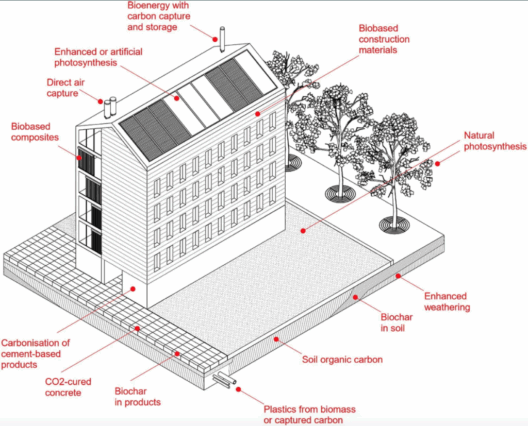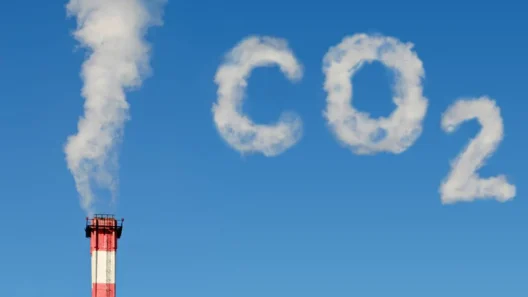Can we stop climate change or just delay the inevitable? This question reverberates through the halls of scientific inquiry, political discourse, and grassroots activism. With alarming frequency, we are reminded of the precarious state of our planet, wrought by anthropogenic activities that have irrevocably altered our climate systems. But as we grapple with this formidable challenge, it becomes increasingly vital to discern whether our efforts can yield meaningful change, or if we are merely postponing an inescapable fate.
First, let us contextualize the phenomenon of climate change. It is characterized by long-term alterations in temperature, precipitation patterns, and extreme weather events—issues that are increasingly becoming quotidian. The Intergovernmental Panel on Climate Change (IPCC) presents stark forecasts, emphasizing an urgent need for mitigation strategies aimed at limiting global warming to 1.5°C above pre-industrial levels. The stakes are monumental, as even a slight temperature increase can catalyze cascading effects throughout ecosystems, economies, and human health.
The question arises: can we halt this progression, or are we simply delaying an unavoidable crisis? To answer, we must consider the mechanisms of climate change. The overwhelming consensus among climatologists is that human activity—primarily the burning of fossil fuels and deforestation—has significantly contributed to greenhouse gas concentrations in the atmosphere. These emissions trap heat, thus propelling global temperatures to unprecedented heights. If humanity commits to an immediate and profound reduction in emissions, we might have a shot at curbing the worst effects of climate change. But this path requires collective action and unwavering resolve.
Temporal urgency is critical. The current trajectory of carbon emissions suggests that we are moving perilously close to irreversible changes in our climate systems. Melting ice caps, rising sea levels, and increasingly severe weather events underscore the necessity for comprehensive climate policies. Yet, the political landscape remains fraught with complexities—often colliding with economic systems reliant on fossil fuels. It beckons the question: how do we transcend these entrenched interests and galvanize a unified global response?
Transformational innovation must underpin our strategies. Technology offers tantalizing prospects for climate mitigation, from renewable energy systems to advanced carbon capture techniques. The burgeoning development of solar and wind power signifies a monumental shift in our energy paradigm. By transitioning to these sustainable sources, we could significantly decrease our carbon footprint and foster a resilient energy infrastructure.
Moreover, investment in green technology presents opportunities for job creation and economic revitalization. A rapid shift towards a greener economy could mitigate the fears of economic downturns associated with stringent environmental policies. Thus, the rhetorical question arises: can we afford not to invest in sustainable innovations? The financial ramifications of climate inaction could eclipse the costs of immediate intervention.
Nevertheless, while innovation is paramount, behavioral changes within societies are equally essential. Personal accountability often manifests itself in minimizing waste, adopting sustainable consumption patterns, and advocating for environmental policies at local and national levels. Community initiatives can mobilize collective resources towards reforestation, conservation, and sustainable agriculture. It prompts an inquiry into whether individual engagement can cultivate widespread societal change.
The role of education in addressing climate change cannot be overstated. An informed populace is crucial for driving systemic change. As awareness burgeons, more individuals can advocate for policies that align with sustainable development goals. Yet, education extends beyond the classroom; it must permeate all layers of society, igniting passion and commitment to the climate cause. Are we ready to empower future generations with the knowledge and tools necessary to safeguard our planet?
Despite these avenues for intervention, naysayers often question the viability of our efforts. Some argue that climate change is an inevitable cycle, one that humanity cannot overcome. This despair can be paralyzing and counterproductive. It may be more prudent to view our situation as a challenge—an unprecedented call to action. The impending consequences of climate inaction do not serve as mere doom-laden prophecies; rather, they compel us toward proactive engagement.
In examining the pursuit of climate action, the intersection of policy and science emerges as a critical focal point. Effective governmental policies must seize the moment and provide frameworks that promote sustainable practices while disincentivizing carbon-heavy industries. International accords, such as the Paris Agreement, symbolize the global commitment to tackle climate change, yet the effectiveness of these agreements relies on national implementation. But can nations truly unite in the face of varying economic interests and political ideologies?
Ultimately, the cyclic introspection—whether we can definitively stop climate change or merely delay its effects—underscores the complexity of the issue. A pragmatic approach considers climate change as a continuum, urging us not only to mitigate its impacts but also to enhance resilience against those already manifesting. Time is not merely of the essence; it is our most formidable adversary. Every incremental effort counts.
As we navigate this multifaceted dilemma, it is crucial to remember that climate change is not a destiny but a challenge to confront. Through innovation, grassroots mobilization, education, and stringent policy measures, it remains conceivable to carve out pathways toward a more sustainable future. The question to ponder is not simply if we can stop climate change but how passionately we choose to engage with this pressing challenge. In our collective quest, each voice matters, and together, we may redefine the narrative of our planet’s future.




